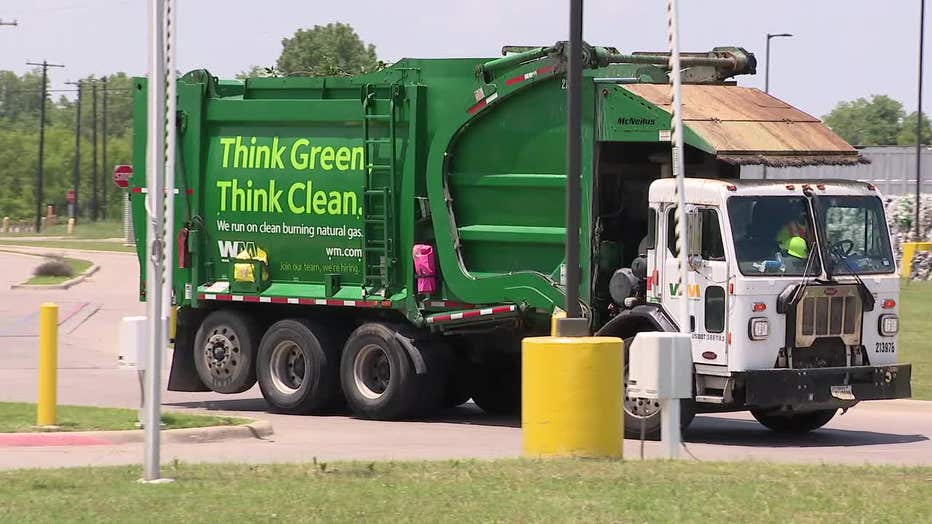Dallas working to get residents to stop putting contaminants in their recycling bins

Dallas working to reduce contaminated recycling bins
A recent audit found more than a quarter of the materials put into the blue Dallas recycling bins is contaminated.
DALLAS - A recent audit found more than a quarter of the materials put into the blue Dallas recycling bins is contaminated.
The contaminants not only pose a danger to expensive equipment, but they can also cause safety risks to employees.
One of the most common offenders in recycle bins is plastic bags.
To try to clean up the city's recycling, the city of Dallas is going to start conducting audits of people's blue bins.
And if people don't clean up their act, the city will take away their bin.
"No one wants a new landfill in their backyard," said Bruce Magnuson, general manager of FCC Environmental.
[REPORTER: "Without recycling, where would that pile be?"]
"It would all go to the landfill. We can make useful something you would throw away," Magnuson said.
Every day, FCC Environmental Services processes about 40 tons of recyclable materials in just one hour.

But about 10 tons of that contains contaminants that harm the good materials.
The contaminants can also damage equipment, or worse.
"Our number one concern sometimes people put in things that can harm our people," Magnuson said.
Magnuson said a lot of the contaminated material is probably put there by well-intentioned people.
Some of the most common mistakes are string of lights and garden hoses.
"That wraps around the equipment and makes it stop," Magnuson explained.
To clean up Dallas’ recycling, Danielle McClelland, manager of the city's Zero Waste Division, said notices will go to areas flagged as sources of the contamination.
"Recycling contamination is a major concern," she said.
The city will be "taking a peek" in those recycling bins.
"What we are seeing people are making honest mistakes," McClelland said.
When mistakes are found, the city will work to educate the resident.
"Clean, empty, and dry. We don’t want half container of peanut butter, but don’t have to waste a lot of water and clean it to make it pristine either," McClelland said.
But if the city finds contaminants in the same bin three times, the bin will be removed.
"To get the container returned, we mail information about a training class, now virtual," McClelland explained.
She said it's a more gentle approach than some cities take.
"Some cities issue citations and fines. Our focus is on education," she added.
So valuable materials can be turned into something new.
"These aluminum cans behind us are pristine," she said.
"It is easy to do, everyone should be doing it," Magnuson said.
Click here for more information about Dallas residential recycling collection.


